https://www.scmp.com/week-asia/politics/article/3146094/kamala-harris-southeast-asia-visit-draws-ire-chinese-netizens
Kamala Harris’ Southeast Asia visit draws ire of Chinese netizens
- The US vice-president’s trip has been picked apart on platforms such as Weibo, with many posts questioning why she was not in Afghanistan
- Analysts say that while Singapore is looking to remain neutral, it backs Washington’s presence in the region – and Beijing is aware of that
Several users of Chinese social media platforms such as Weibo asked why Harris had not instead headed to
to resolve the regional turmoil brought about by the withdrawal of American troops. Harris arrived in Singapore on Sunday night, and heads to later on Tuesday.“Why did she head to China’s backyard?” one posted, while another asked, without mentioning
by name if it wanted to “be brothers with the Chinese or ... running dogs for the Americans?”Asked at a daily press briefing on Monday about Harris’ visit, Chinese Foreign Ministry spokesman Wang Wenbin said: “China always holds that exchanges between countries should be conducive to promoting mutual trust, and peace and stability in the region and the world at large”.
With Chinese state media and diplomats continuously highlighting how the chaotic US pull-out of Afghanistan is a sign that it cannot be trusted by allies and partners in Europe and Asia, Chinese netizens also poured scorn on Washington’s claims that it is committed to the region, saying the US had made “countless promises in the past that it had not kept” and that Harris is in the region “to stir up trouble and sow discord”.
Others, citing a well-known Chinese idiom, suggested it was clear Harris had undertaken the trip so as to garner support to counter Beijing’s influence in the region.
“The heart of Sima Zhao is known to everyone”, they posted – a reference to a military general during China’s Three Kingdoms period (AD220-280) whose ambitions were said to be so stark that they were apparent to all observers.
Singapore’s decision to name an orchid after Harris, a gesture it extends to many heads of state and foreign dignitaries, was also scorned by netizens, some of whom said the city state was being a “bootlicker”. There were a few sympathetic voices pointing out that as a small country, the island nation needed to find its own mode of survival.
The reactions started to come in following Harris’ press conference with Singaporean Prime Minister
, who said the US would be judged by its response to the unfolding crisis in Afghanistan.Harris began her two-nation tour of Asia on Monday by fielding a barrage of questions about the recent US withdrawal from Afghanistan. She demurred when asked about the drawdown, saying instead that Washington was “singularly” focused on the evacuation of US and Afghan citizens after Taliban militants seized control of the country.
Asked by a reporter about whether his “calculus” had changed about relying on the US as a partner in the region, Lee added that countries would pay close attention to how the US repositioned itself and engaged partners and allies in the region while continuing to fight terrorism.
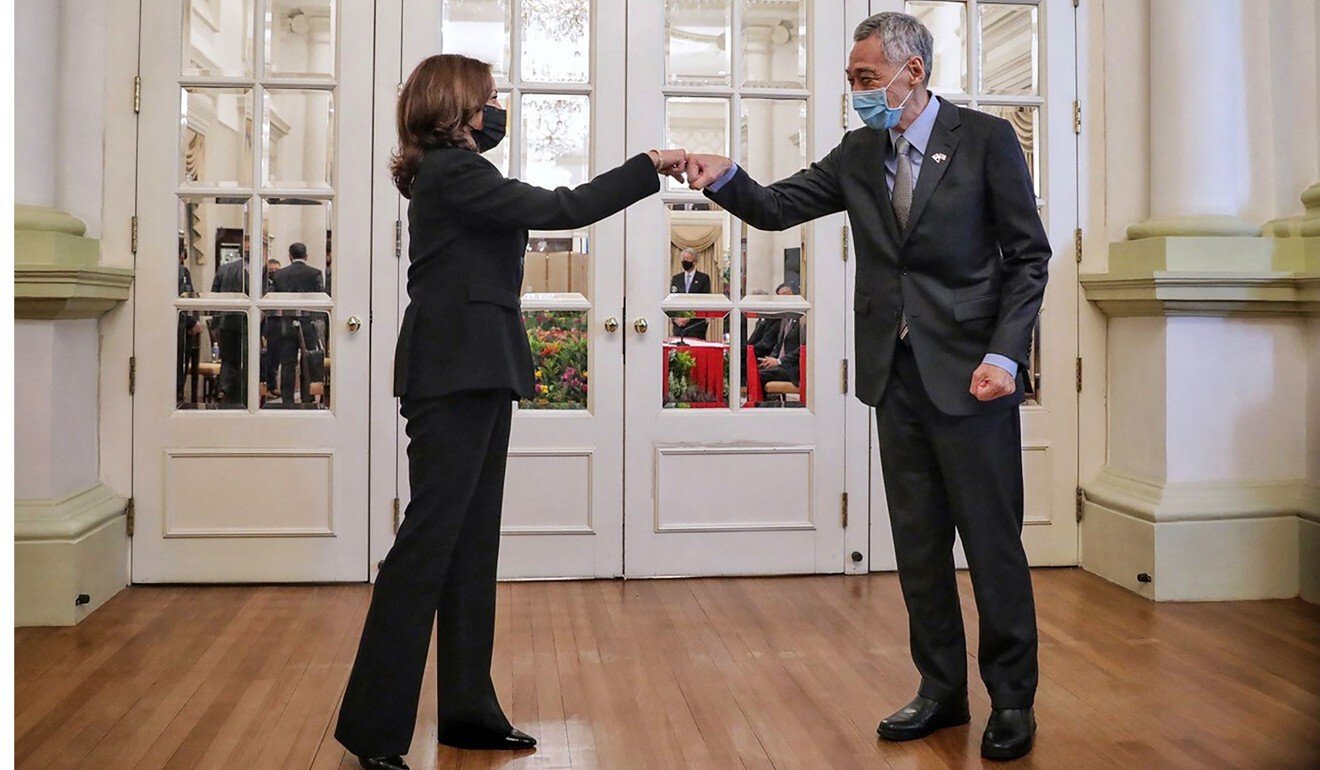
China’s nationalistic tabloid Global Times has been fiercely critical of Harris’ Asia-Pacific trip, with multiple articles suggesting her visit was designed to drive a wedge into the region and contain Beijing.
In a Monday editorial, it claimed Washington would not achieve its goal as Beijing was “the most
”, referring to the Association of Southeast Asian Nations’ fight against Covid-19, its access to vaccines, and prospects for post-pandemic economic recovery.The tabloid also played up Singaporean broadcaster Channel NewsAsia’s Sunday interview with foreign minister Vivian Balakrishnan, who said the island nation would “be useful but we will not be made use of” in its relations with both China and the US.
Singapore is not one of Washington’s formal treaty allies but is one of its most important regional partners, even as the city state also maintains close ties with Beijing. From time to time though, Beijing’s diplomats have expressed views that Singapore, being a Chinese-majority nation, should be more supportive of it.
Singapore will need to look out for its own best interests. Beijing’s sentiments are a consideration, but ultimately no one can control what Beijing thinks or feels or how it chooses to react
Chong Ja Ian, an associate professor in the political science department at the National University of Singapore, said more hawkish voices in Beijing could well view the city state’s cooperation and interest in long-term US commitment to the region with some wariness.
Some hawkish online individuals and media might even be upset about Singapore’s efforts to further cooperate with Washington, Chong said, adding that there appeared to be few things that did not upset these two groups of Chinese these days.
“The crux is whether senior officials apart from spokespeople pick on this point and act on it. I am unable to speculate. There is a certain arbitrariness to China’s actions,” he said.
“However, Singapore will need to look out for its own best interests. Beijing’s sentiments are a consideration, but ultimately no one can control what Beijing thinks or feels or how it chooses to react,” Chong said, adding that Singapore generally preferred to have more major powers active in the region and a clear, predictable set of international rules binding all actors.
This, he explained, was understandable for smaller actors that could not force their way on issues, and that the US had shown itself to be relatively willing to comply with international norms such as freedom of navigation.
Due to this, and the fact that it was not party to any disputes in Southeast Asia, Chong said American interests were less likely to be at odds with most actors in the region.
Lu Xiang, a senior researcher on China-US relations at the Chinese Academy of Social Sciences, said even though Singapore had long played the role of a middleman between Beijing and Washington, it faced a dilemma in the powers’ strategic competition.
“Singapore hopes to see the continued presence of the US in Southeast Asia, but it is also worried that the
will develop into a strategic conflict,” he said. “In the event of a conflict, countries like Singapore will undoubtedly face a crisis of survival. Prime Minister Lee’s statement highlights his response to the dilemma.”Pointing out that Singapore was regarded as a “first-tier partner country” in Washington’s strategic calculations in Southeast Asia, Lu said the island nation was “well aware that once such a partnership violates China’s security interests, the consequences will be profound and unbearable”.
Xu Liping, director of the Centre for Southeast Asian Studies at the Chinese Academy of Social Sciences, was quoted by the Sina news portal as saying that Singapore was on Harris’ agenda as the island served as the base of the US Navy in Southeast Asia and was deeply tied to the US in terms of security interests.
Mark N. Katz, a government and politics professor at George Mason University in Virginia, said Lee had made clear his choice: the US.
“Like so many US allies that are now worried about what the US withdrawal from Afghanistan and the downfall of the Kabul government even before this was completed means for them, Singapore – which has no real capacity to defend itself against any external threat – very much wants the US to consider Singapore as an indispensable ally,” he said.
“I think that Washington does indeed consider it to be one.”

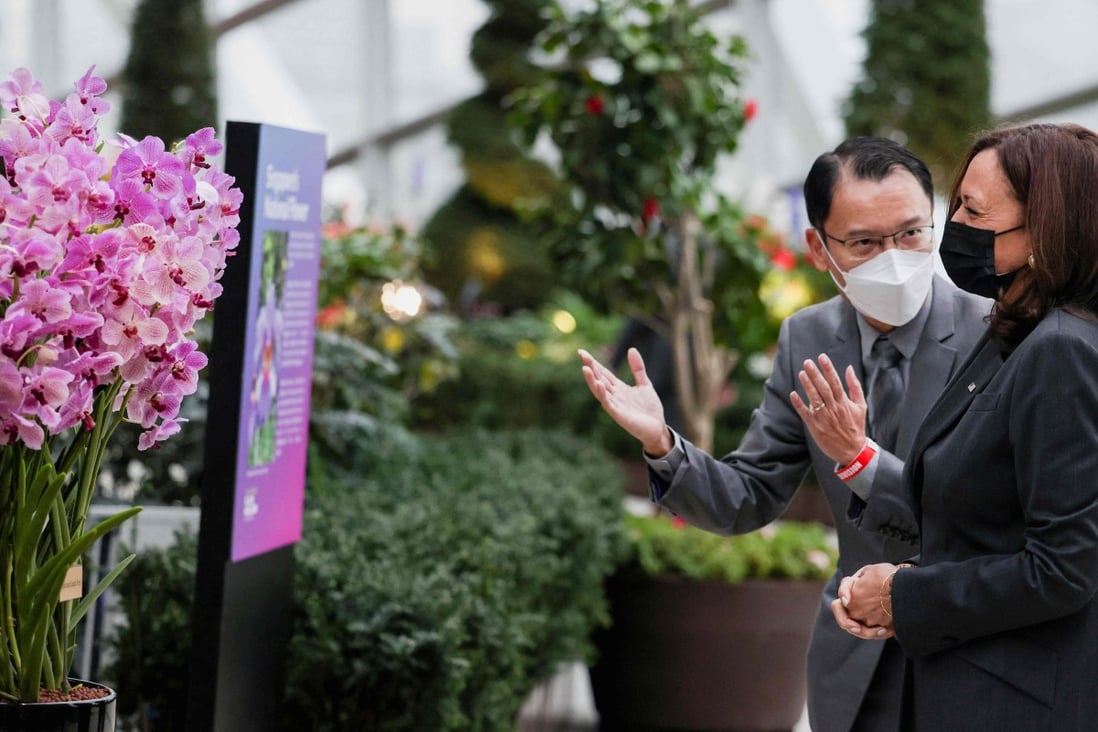
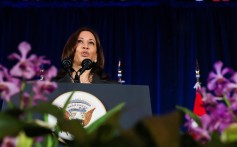
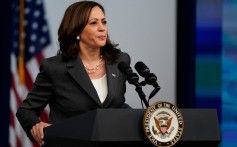
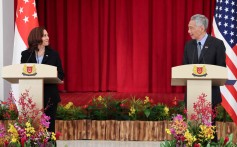
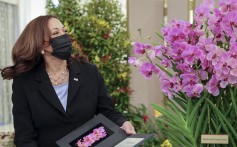
Comments